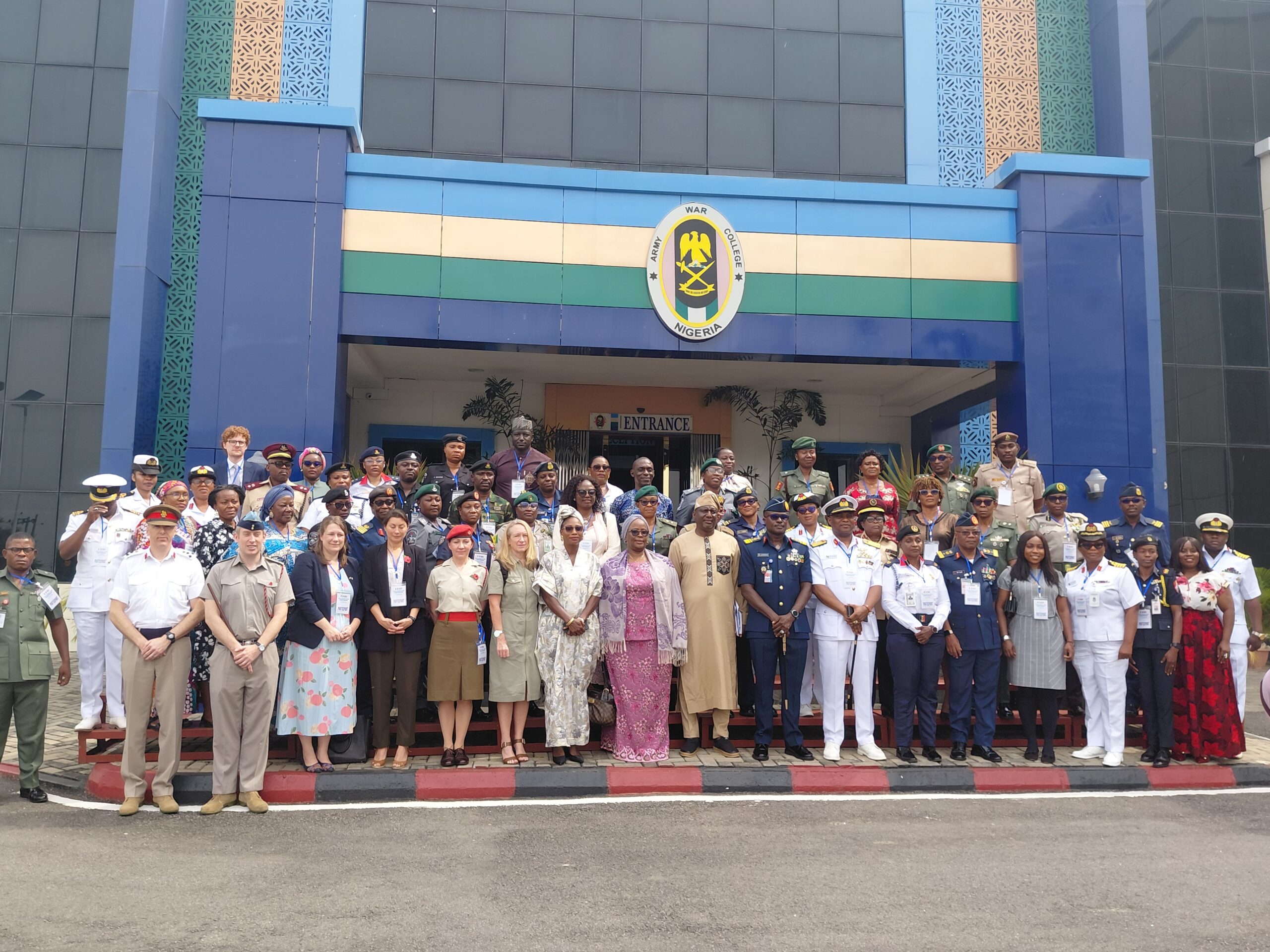By Ruth Dabo – Abuja, October 28, 2025
The Defence Headquarters (DHQ) has reaffirmed its strong commitment to advancing gender inclusion and equality within Nigeria’s security architecture as part of ongoing efforts to strengthen professionalism, inclusivity, and operational effectiveness across the Armed Forces.
This was highlighted during the opening of a three-day Gender Symposium for Nigerian Security Actors, jointly organized by the Defence Headquarters’ Department of Civil–Military Relations, in collaboration with the British High Commission, Federal Ministry of Women Affairs, UN Women, and the Institute for Peace and Conflict Resolution (IPCR).
Held at Okunola Hall, Army War College, Abuja, the symposium marks the 25th Anniversary of the United Nations Security Council Resolution (UNSCR) 1325, which emphasizes women’s active participation in peacebuilding, conflict prevention, and national security governance.
Delivering the keynote address, the Director of Civil–Military Relations, Air Vice Marshal Olusola Akinboyewa, stated that the Armed Forces of Nigeria remains deeply committed to integrating gender perspectives into its policies, training, and operations.
“Gender mainstreaming is not merely procedural but a strategic necessity for effective security management, improved public trust, and sustainable peace,” he said. “A gender-responsive approach enhances mission effectiveness and strengthens the bond between security institutions and the civilian population.”
He commended the Government of the United Kingdom, the Federal Ministry of Women Affairs, UN Women, and other partners for their continuous collaboration and support in promoting gender inclusion within Nigeria’s security architecture.
Speaking on behalf of the United Kingdom, the British Deputy High Commissioner to Nigeria, Mrs. Gill Lever, OBE, reaffirmed the UK’s partnership with Nigeria in advancing the Women, Peace and Security (WPS) agenda under the UK–Nigeria Security and Defence Partnership.
She noted that gender inclusion has remained a core priority area, adding that empowering women as peacebuilders and leaders is not only a moral obligation but a strategic imperative for sustainable peace.
“Evidence consistently shows that when women participate meaningfully in peace processes, peace agreements are 35 percent more likely to last at least 15 years,” she said.
Mrs. Lever commended Nigeria’s progress in implementing the National Action Plan on Women, Peace and Security and reviewing the Armed Forces Gender Policy to further strengthen inclusivity across the defence and security sectors.
In her goodwill message, the Minister of Women Affairs, Barr. Imaan Sulaiman-Ibrahim, lauded the Armed Forces and security institutions for their growing embrace of gender perspectives. She noted that since the adoption of Nigeria’s National Action Plan on Women, Peace, and Security in 2013, significant progress has been achieved in mainstreaming gender across multiple sectors.
“Gender equality in peace and security requires relentless advocacy, innovation, and partnership,” the Minister said. “This symposium offers a renewed platform to chart the way forward.”
Similarly, the UN Women Country Representative to Nigeria, Ms. Beatrice Eyong, described the symposium as a timely platform for reflection, dialogue, and capacity building. She commended Nigeria’s leadership in implementing two National Action Plans and praised the Armed Forces for exceeding the United Nations’ 17 percent benchmark for women’s participation in peacekeeping operations — reaching 37.9 percent in 2013.
“The true test of our commitment lies in translating gender policies into concrete results,” she said. “As we look to the next 25 years, we must ensure greater inclusion, stronger institutions, and sustained peace.”
Representing the Director-General of the Institute for Peace and Conflict Resolution (IPCR), Mrs. Suzanne Kulaku reaffirmed the Institute’s dedication to institutionalizing gender inclusivity within peace and security frameworks.
“Gender perspectives are no longer optional — they are essential,” she emphasized, urging participants to design actionable strategies that enhance women’s leadership in the security sector.
The symposium, themed “When Women Lead, Peace Prevails,” brought together participants from the Armed Forces of Nigeria, Nigeria Police Force, Nigeria Security and Civil Defence Corps (NSCDC), Federal Ministry of Women Affairs, and international development partners to share insights and develop strategies for strengthening gender-responsive security governance.
As Nigeria prepares to launch its Third National Action Plan on Women, Peace, and Security, stakeholders reaffirmed their collective resolve to transform the principles of UNSCR 1325 into tangible outcomes ensuring that peace and security efforts across the country remain inclusive, effective, and sustainable.
